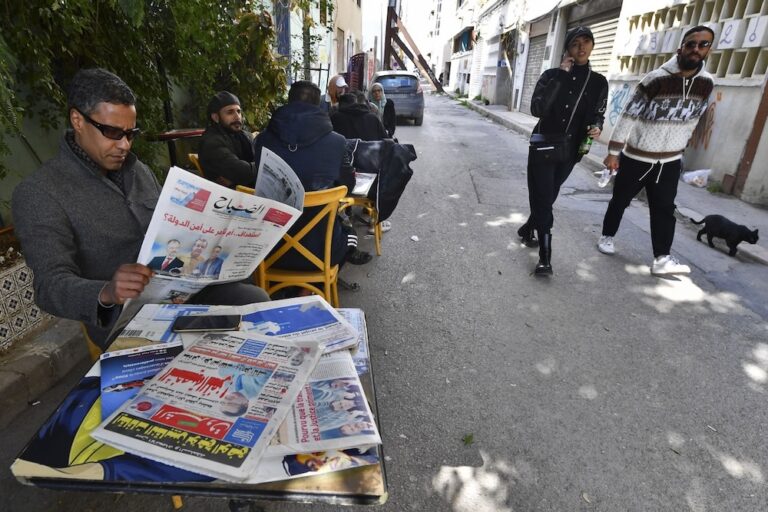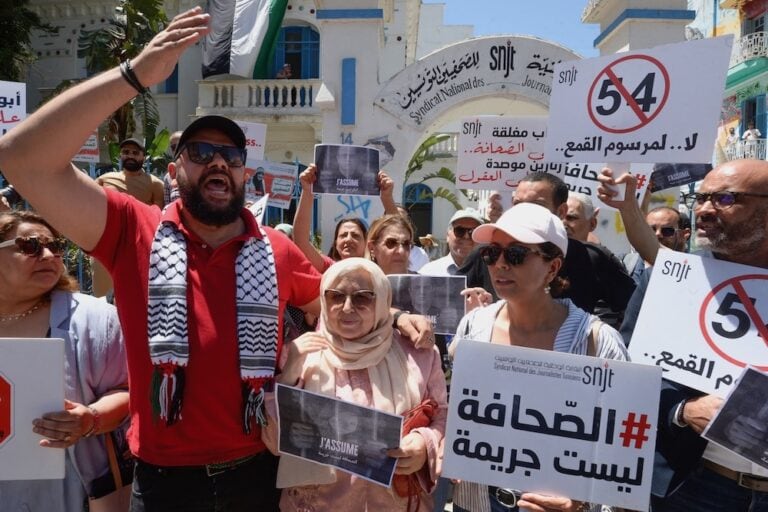(RSF/IFEX) – RSF has voiced outrage over the Tunisian Court of Cassation’s 8 December 2004 decision to uphold heavy prison sentences against eight Internet users from the southern city of Zarzis. The organisation also reiterated its outrage over the mistreatment to which the defendants were subjected in detention. The eight Internet users were convicted of […]
(RSF/IFEX) – RSF has voiced outrage over the Tunisian Court of Cassation’s 8 December 2004 decision to uphold heavy prison sentences against eight Internet users from the southern city of Zarzis. The organisation also reiterated its outrage over the mistreatment to which the defendants were subjected in detention.
The eight Internet users were convicted of using the Internet to promote terrorism, on the basis of downloaded files and confessions obtained under torture.
RSF said it hoped organisers of the November 2005 World Summit on the Information Society (WSIS) were aware of the “cruel irony” of a situation that would make Tunis the summit’s host, in “a country where you can be imprisoned and tortured simply for viewing a website.”
The Court of Cassation upheld the Internet users’ convictions, even though their trial was marked by serious irregularities. The prosecution submitted printouts of Internet pages, allegedly viewed by the defendants, that dealt with automatic weapons and time bombs, but did not give any indication as to where the pages originated or when they were viewed. The court refused to consider the defendants’ claims that they were tortured in detention.
Lawyer Nadia Nasraoui, a member of the Association for Combatting Torture in Tunisia (Association de lutte contre la torture en Tunisie, ALTT), said the Court of Cassation’s decision was predictable. “With respect to political trials, it is extremely rare for the Court of Cassation to overturn Appeals Court decisions,” she specified.
The Zarzis Internet users, who are nearly all in their early 20s, are being held in crowded cells where they are forced to sleep on the ground. Some of them, notably Amor Farouk Chlendi, suffer from scabies and other skin ailments. An ALTT report said they were tortured for 10 days following their February 2003 arrests. They were suspended by their wrists for hours and beaten. Some of them were also beaten on the soles of their feet, a torture method known as “falaqua”.


